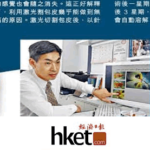What is a skin abscess?
A skin abscess is a pink or red skin mass. It is painful and warm upon touching. The middle of an abscess is full of pus and debris and it may rupture as time goes by. It is caused by infection and inflammation of the skin and subcutaneous tissue.
Skin abscesses can happen in any place on your body. Common sites of skin abscess are in the scalp, neck, trunk, buttock (buttock abscess), limbs, armpits (axillary abscess), groin (groin abscess), areas around your anus (perianal abscess), scrotum (scrotal abscess), vulva (vulvar abscess) and vaginal opening (Bartholin gland abscess), and around the base of your spine (pilonidal sinus with abscess). Inflammation around a hair follicle can also lead to the formation of an abscess, and it is called a boil (furuncle). Infection, inflammation, and pus collection around teeth is called a dental abscess.
Antibiotics alone for skin abscesses usually will not be successful. Spontaneous rupture and pus draining sometimes occur spontaneously. In general, most abscesses must be opened and drained surgically in order to achieve earlier recovery. The surgeries must be performed properly by experienced doctors and the procedure is named "Incision, Drainage, and Debridement", or, in short, (I&D).

Causes of skin abscesses
Abscesses are caused by obstruction of sebaceous glands, obstruction of sweat glands, infection of hair follicles, minor skin breaks, or minor skin punctures or trauma. Bacteria travel under the skin or into these glands or damaged tissue, invade our healthy body tissue, and cause an acute inflammatory reaction by our immune system, resulting in a bacterial infection.
The middle of the abscess liquefies, containing dead cells, bacteria, inflammatory discharge, debris, and forms a pus-containing cavity. This pus-containing cavity begins to grow, creating tension under the skin and further inflammation of the surrounding tissues. Increasing local pressure and inflammation eventually cause escalating pain.
Patients with impaired immunity are prone to have abscesses. These patients may have steroid therapy, chemotherapy, diabetes, cancer, AIDS, Sickle cell disease, leukemia, peripheral vascular disease, inflammatory bowel diseases, be alcoholics, IV drug addicts, or have severe burns or severe trauma.
There are other risk factors for abscess formation. They include dirty environments, close contact with persons having certain types of skin infections, poor hygiene, and poor circulation. Hot and wet environments also promote abscess formation.
Symptoms
Most often, an abscess is noticed as an increasingly red, painful, tender, and warm nodule or swelling.
Abscesses usually progress and become bigger with time. A small proportion of abscesses rupture spontaneously and pus drains out.
Most abscesses require surgical treatment. If no surgery is done as soon as possible, most abscesses will continue to grow bigger and get worse. The infection can spread to surrounding tissues under the skin and even into the bloodstream, causing fever and sepsis.
If the infection spreads into deeper tissue, patients may develop a fever and begin to feel ill. It may result in necrotizing fasciitis, a potentially deadly disease with bacteria spreading quickly, widely, and deeply below the skin.
Diagnosis
Treatment
Antibiotics
Antibiotics cannot travel to the center of the abscess, where most bacteria are situated. If antibiotics are the only treatment, most abscesses cannot be cured. Antibiotics need to work with incision and drainage to maximize their body defense effect.
Traditional Surgery
Most abscesses require a minor surgery called incision and drainage, and debridement. It can be done under local anesthesia, spinal anesthesia, or general anesthesia, at the operating theatre in a clinic or in a hospital. Some skin abscesses may need to be debrided more than once.
After incision and drainage, and debridement surgery, the wound usually needs to be cleansed by nurses or doctors every day until the wound heals completely. Smart patients can learn to do it on their own. The wound healing rate is usually less than 0.75mm/day. If you have a 2cm wound after incision and drainage, it may take you about a month to heal. Please consult your doctor for advice.
Modern Surgery / Delayed Primary Wound Closure / Secondary Suturing
After initial incision and drainage plus vigorous debridement surgery, the unhealthy tissue is gone. The wound is cleansed with antiseptic solution daily for a few days. If the wound condition is satisfactory, then the wound can be closed by delayed primary wound closure or, another name is, secondary suturing under local anesthesia, spinal anesthesia, or general anesthesia. With this approach, patients with skin abscess can return to school or office work a few days after the initial surgery and avoid unnecessary prolonged wound cleansing and dressing. Please consult your doctor for advice.
Special Case: Facial Abscess
Most facial abscess patients request minimal or invisible facial abscess scars after treatment. Now, facial abscess patients can achieve their goals. Patients with facial abscess can undergo “daily needle aspiration of the pus” or “mini-incision, drainage, and debridement surgery” by an experienced surgeon to achieve the goal. Please consult with your doctor for advice.
















